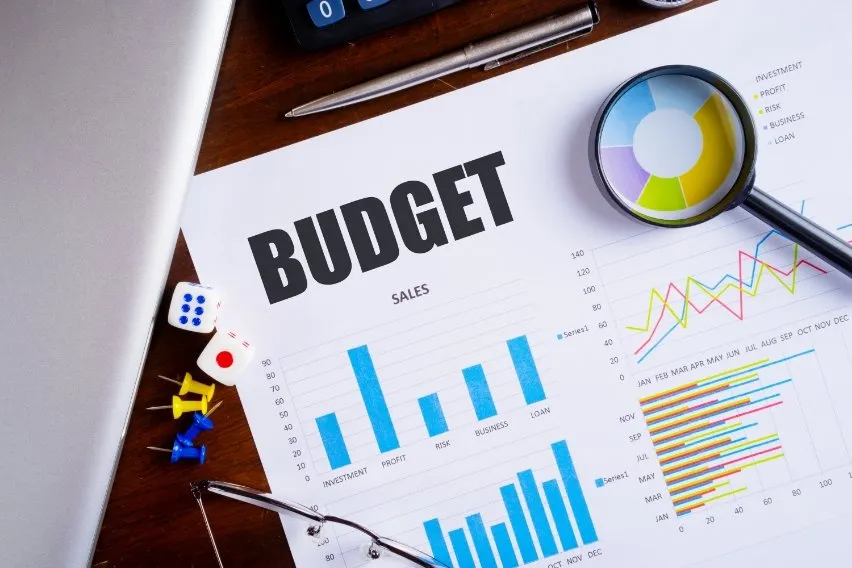Three simple steps to create a budget for beginners!
Have you considered a Budget as an important part of your financial plan? Know it today that if you want to get a better grasp on money management and gain control over your finances, then you need to have a budget. It is a necessary tool to keep your finances in order and in some way determine where your money goes each month.
Creating a budget may not exactly sound like the most enjoyable task for most people because of a wrong understanding of the fundamentals. It can appear to be an overwhelming task but does not have to be since all you need to do is figure out how to track your finances in a way it works for you.There are several free budget templates that can help you easily keep tabs on your finances.
You will need to first gather together all your financial papers to assist you with data needed for your budget. With this 3-step guide, your pre-made spreadsheets and templates become easier to use for that effective budget.
(A). Determine your Income from all sources
The first step in creating a personal or household budget is to determine the actual amount of money coming in from all sources. This should include all income that may or may not come from a job, such as interest, gift, alimony, dividend, child support, investment income, and so on. Remember, you need to work with “net” income for this budget because that is the actual cash you can spend each time you get paid. Your business/side jobs profit should also be what you have after subtracting the cost of sales and other business expenses including tax.
The exact amount of income you earn can be got from your financial papers like your payslip, bank statement, investment/accounts statement, and other reports of income.
(B). List your monthly spending
Write down a categorized list of all the expenses you expect to have during a month.
For a personal/household budget, there should be a goal to account for every dollar of your total earnings and work with real numbers. Your monthly spending plan will include things like donations, savings, and debt repayments. Keep your receipt after each purchase to reconcile with your budget and spending. Decide to categorize your spending as either Fixed or Variable
Your fixed expenses are the regular monthly bills like rent/mortgage, internet, savings, insurance premiums, etc., and cannot easily be changed. They are usually paid on a regular basis and fluctuates only slightly. They also help you to predict fairly accurately how much you will have to budget for subsequently.
And for your variable expenses—those that may change from month to month such as groceries, utility, gas, repairs, etc. This is an area where you might find opportunities to reduce costs but still that they are not often discretionary expenses. Many of your variable expenses may also be fairly predictable when you study trends or patterns of your past years’ statements and reports. For example, maybe you lunch-out once every week.
Concerning some ‘irregular’, ‘one-off’, and annual spending that occurs as part of your expenses, they should be planned for all-through the year, so they do not translate to emergency expenses. Expenses like License renewals, Property charges, and the likes fall in this category and should be budgeted for as a monthly cost but kept back in the account until they are due and payable as a lump sum. (Calculated as Total Amount Payable Divided by 12)
(C). Create your budget and monitor it
You must match your two lists (income/spending) and evaluate the outcome.
Now that your budget is almost ready, check what your total income less your total spending gives you in figure.
Do you have a Surplus? If your income is higher than your expenses, you have a surplus and off to a good start. Commit that surplus to debt reduction if any and/or add it to your savings for emergencies and the future.
But if it is a Deficit, i.e. your spending plan is more than your income, then cut down some of your expenses until you get back to at least a zero.
Remember to track your actual spending against your budgeted amount every day. It is not out of place for you to adjust your budget whenever there is the need. It is a flexible document and serves as a guide to ensure your expenses are managed with every sense of responsibility.
Recording what you spend all through the month helps you identify unnecessary expenses and problematic spending patterns – you are also able to avoid overspending.
Bottom Line
Budgets help you plan for your financial activities which impacts your financial future. Let your goal in using your budget be to keep your expenses equal to or lower than your income. That is the only way to have more savings for investments. Feel free to use any of paper and pen, a spreadsheet or a budget application.





